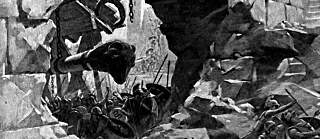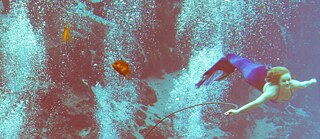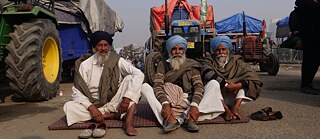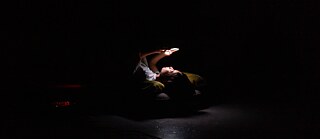Panta Rhei
Stasis in Miletus
The world city of Ephesus, home to the Temple of Artemis — one of the Seven Wonders of the Ancient world — was located 50 miles north of Miletus. At precisely this moment, Heraclitus, the Ionian from Ephesus, is dreaming. Heraclitus opens his eyes. It is the period of stasis.
At the Beginning:
The word “stasis” does not appear in Homer’s writings.
The Trojan War was a different war.
The era of the Trojan War was a pre-era. Star Wars.
The legal order is still considered sacred in Homer’s writings.
There is no money in Homer’s writings.
At the time of the Trojan War, the gods were still visible.
They stood on the battlefield and on the beach.
The gods were able to eat and drink.
But not in the same way that they laughed or became angry, loved, or raped one another.
When the gods ate or drank they assumed a physical form, a body.
And when they had a body, they began to take care of it.
They shaved. Washed. Used creams and lotions: to feel the body’s needs that they did not, in fact, really feel.
They did this out of awe of humans.
After ten years of war, of the worlds outside Troy, Zeus, the god of light, day, and hospitality, decided to give humankind history.
Much, Much Later:
Herodotus — the author of the secularization process who tracked humankind’s descent into the abyss of social reality and money with the words: “Here are presented the results of the inquiry carried out by Herodotus of Halicarnassus,” thereby developing an obsessive interest in Ethiopian men — tells this story of the stasis among the Ionians:
After Croesus had lost everything, the Greek cities on the coast of Asia Minor came under Persian rule. Aristagoras, the puppet tyrant of Miletus, decided to enter into a pact with the Persian governor Artaphernes to conquer the island of Naxos. The entire expedition was an inconceivable debacle. To avoid being immediately ousted as ruler by the senior Persian administrators back in Miletus, Aristagoras decided to incite all Ionians — the population of Asia Minor who regarded themselves as Greeks — to rebel against the Persian King of Kings, Darius I. The Ionian Revolt — financed by a Western union led by Athens that was threatened by the advance of the Persians — marked the start of the Greco‑Persian Wars, a world war that lasted for ten years. The world city of Ephesus, home to the Temple of Artemis — one of the Seven Wonders of the Ancient World — was located 50 miles north of Miletus.
At Precisely this Moment:
Heraclitus, the Ionian from Ephesus, is dreaming of fish.
10,000 silvery sardines with staring eyes.
A monstrous shoal writhing in a concentrated dance, in the cold water.
Heraclitus opens his eyes.
He looks at the ceiling.
He breathes in.
His nose is blocked.
I feel sick.
He coughs.
Oh god.
He realizes from the sounds of the day that it is already late.
Heraclitus sits up, places his feet on the cold marble floor. He rests his elbows on his thighs. His knees are pointed. He hangs his head.
Oh god.
Water.
Wine.
Heraclitus glances at the pillows he had pushed to the side and piled up in his sleep and looks into the golden eyes of his cat.
The cat’s sleep begins now. Its day is the night.
Heraclitus coughs, tries not to throw up, and strokes the cat.
Heraclitus’s first real thought, which allows him to briefly forget the deplorable state of his body, is the absurd thing that someone in the bar told him yesterday, namely that some new buildings in Ephesus have underfloor heating.
Cool air comes in through the window.
Through the new door curtain, which depicts Helen’s birth out of an egg and is moving gently in the breeze, Heraclitus hears voices: Everyone is awake already.
What time is it?
Heraclitus gets up, totters to the curtain, pushes the velvet curtain to the side, looks into the hall, and sees Hermodorus who lives with him.
Good morning, Heraclitus.
What time is it?
Noon.
I feel sick.
The battle of Lade has been lost.
What?
The Persians were victorious. Miletus was captured. The men are being murdered. The women are being raped before their children’s eyes. The children are being enslaved. The young men are being castrated.
Heraclitus’s second real thought of the day is about death.
Heraclitus’s third real thought is about war.
Heraclitus’s fourth thought is about people.
Heraclitus’s fifth thought goes back to the sardines.
I feel sick.
Why?
I can’t take alcohol anymore. I cannot stand this city anymore.
We are now old. You can no longer drink as if you were a young man.
I’m going to the bathroom.
One more glance back into his room at the embroidered pillows on the bed.
A twinge of pain behind the eyes.
He washes his head in the bathroom, pours olive oil into his hair and onto his face.
Underfloor heating, how absurd.
He has dark hair, black as pitch, like life itself.
Back in his room, he steps out onto the balcony.
He looks across the cypresses, pillars in his neighbor’s garden.
The hedges: The meticulousness of the neighbor’s gardener makes him aggressive.
He studies the moss on the canopy.
A pelican rises up into the air.
Miletus.
The mists of war.
That will lead to war.
The West won’t tolerate that.
It will become a world war.
Everyone will go to war.
A bloodbath.
Heraclitus watches the heavy flight of the pelican.
His knees wobbly, Heraclitus goes down the stairs.
He feels like an old workman.
I am not old.
Heraclitus is not old.
Heraclitus is not yet 33.
In the kitchen, he finds Myson who is staring into a pot, watching the porridge as it cooks.
Good morning.
Good afternoon.
Do you want something?
No thanks, I’m having a vision of sardines.
Sardines?
Sardines are the only thing that can help me now.
Have you heard about Miletus?
Yes, just heard.
What should we do, Heraclitus?
What do you mean: What should we do?
Yes: What should we do?
We can kill ourselves in view of this humanity. That’s the only thing we can do. We can kill ourselves. With every step.
Heraclitus takes a sip of tea.
No, better not.
Heraclitus’s stomach cramps.
What are you going to do now?
What am I going to do now?
What are you going to do today?
I need sardines.
Heraclitus walks into the neighbor’s garden, past the cypresses swaying in the wind.
Trees could look like people. But they don’t. They are not people.
Thank god.
Heraclitus walks down a small hill, taking a shortcut to the harbor.
The neighbor’s son is nailing the windows into place.
Heraclitus greets him with a nod.
Heraclitus follows a dirt track. He kicks a pine cone to the side.
If he needed to throw up, he could throw up here.
Actually, all paths are dirt tracks.
He feels the fall, a cool breeze in the branches.
If he manages to get through the little patch of forest without throwing up, he will have made it. Once he is among people, he will be able to pull himself together.
Hopefully.
Hopefully, there will be sardines.
He comes out behind the monument to the athlete who is rubbing oil, sweat, and dust from his body.
Heraclitus turns right into a residential street and carries on walking along it towards the lower town.
Children are playing with terracotta marbles that have swastikas scored into them.
A game involving throwing that Heraclitus does not understand.
Wasps are gorging themselves on the wild grapevines that climb the walls of the red houses.
A new bakery has opened in the street: Theraion, which sells half-baked bread rolls to be finished in the oven at home.
The cool breeze. The wind. The movement of the muscles. The onset of fall.
At the theater, Heraclitus reads a poster. The concert that was to be given by a group from Cyprus has been canceled because of the current situation.
He spies Melanthippe on the square in front of the Library of Celsus. She is his best friend. But he is too wiped out to say hello.
Sardines.
Heraclitus does not look at Memnon’s Taverna as he passes it. The theme of Memnon’s Taverna is the Ethiopians’ entering the Trojan War. The temple of Abu Simbel is painted on the walls of the bar as are symbols that are supposed to represent Nubian characters. But Heraclitus knows that they are not Nubian characters but merely symbols born of the imagination of the bar owner who had a curious soft spot for Ethiopia even though he really came from a suburb of Ephesus. There were dates on the tables, with date pits collecting on the floor.
Memories of last night flash in his mind as Heraclitus looks away. He continues walking.
A new wave of nausea: The light was dark red, and the people around him were chatting and being friendly to one another, sometimes making gestures of love, and Heraclitus kept silent and silently kept on drinking, more and more. He was pleased now to have friends. He had no desire to speak. When the sun rose, he was so drunk that he had stroked a dog and almost knew already how he would feel today.
At the Temple of Artemis, Heraclitus observes the crazies who are beseeching Artemis.
As if that would help now.
As if the gods would listen.
As if the gods hadn’t turned away.
As if it weren’t they who had made the lives of people possible in the first place.
At the precise moment that they turned away.
Oh Artemis, goddess of the hunt, goddess of the forest, goddess of wild animals, goddess of childbirth and of the moon, protectress of women and children, Olympic goddess, daughter of Zeus, daughter of Leto, twin sister of Apollo, protect Miletus, our twin city that you...
Heraclitus turns away.
What he really wants to do is scream: Artemis, goddess of the hierarchy of murder.
At the gate to the harbor, Heraclitus feels that the exercise is doing his body good. He walks through the purple east gate.
He gazes up at the sky.
Perhaps the sun will show itself today after all.
That would be good.
He thinks to himself: The sun is new every day. But people are the same at all times.
Today, we still worship monuments. Because we worship ourselves.
In 2,500 years, we will worship the ruins. Because we worship ourselves.
We will worship history. Because we worship ourselves.
He hears the sounds of the harbor.
He hears the shipbuilders singing.
He smells grilled sardines, although they are still too far away.
Finally, he finds himself outside The Pelican Taverna.
He steps inside.
It smells of grilled sardines.
It smells of grilled sardine skewers on an open fire.
He greets the cook.
Do you have sardines?
Yes, of course, we have sardines.
Two sardine skewers, please.
Of course, to eat here or to go?
To eat here.
That’ll be 12.50.
Oh god.
Sorry, I’ve forgotten my money.
Oh god.
Heraclitus hurries outside.
Heraclitus stands outside The Pelican.
The adrenaline of embarrassment suppresses the nausea.
He smells the salt of the ocean.
Seaweed. People. Dirt.
I have to go back.
Heraclitus hurries through the harbor gate.
At the Library of Celsus, he looks for Melanthippe.
Perhaps he could borrow some money, but he can’t see her.
This time, he goes back via the agora.
Not past the neighbor’s son again.
People are standing around on the agora. Getting the news. They are up in arms. Some men are yelling:
Miletus has fallen and been looted.
The culprits must be put on trial.
Stop the war criminals.
We must defend democracy.
This is where the fate of democracy is decided.
The bodies of those executed are strewn across the streets.
The individual dead bodies aren’t counted, their weight is estimated.
The West has condemned the atrocities. They will respond in the severest possible terms.
How should the world react to something like this?
We will be next. Ephesus will be butchered next.
Heraclitus walks up the main street. He keeps walking faster and faster as if magnetic forces were at work in Ephesus.
It must be late noon, civil servants are coming out of their offices.
He turns sharp left into the alley leading to his house.
The alley is empty. A gust of wind blows up some dust.
Heraclitus’s legs are getting cold.
Myson is in the kitchen, washing up.
Back already?
I forgot my money.
Myson laughs.
Heraclitus drinks a sip of tea.
He goes up the stairs to his room.
He steps out onto the balcony and inhales deeply.
He sits down on the bed and strokes his cat.
Then, he slowly reclines.
Looks at the ceiling.
Death is everything we see when we are awake and sleep what we see when asleep.
He closes his eyes. It is the time of stasis, the time of war. It has been war for five years. It won’t pass for years yet: the mists of war.
It is this time: the time of death that takes hold of everyone and from which nothing is created.
Nothing lives. Everything dies.
Only nature carries on.
The cat’s sleep.
Heraclitus’s breathing becomes more steady.
In a minute, he will begin dreaming again.
This article was commissioned by and created in collaboration with Das Wetter – Magazin für Text und Musik.
The word “stasis” does not appear in Homer’s writings.
The Trojan War was a different war.
The era of the Trojan War was a pre-era. Star Wars.
The legal order is still considered sacred in Homer’s writings.
There is no money in Homer’s writings.
At the time of the Trojan War, the gods were still visible.
They stood on the battlefield and on the beach.
The gods were able to eat and drink.
But not in the same way that they laughed or became angry, loved, or raped one another.
When the gods ate or drank they assumed a physical form, a body.
And when they had a body, they began to take care of it.
They shaved. Washed. Used creams and lotions: to feel the body’s needs that they did not, in fact, really feel.
They did this out of awe of humans.
After ten years of war, of the worlds outside Troy, Zeus, the god of light, day, and hospitality, decided to give humankind history.
Much, Much Later:
Herodotus — the author of the secularization process who tracked humankind’s descent into the abyss of social reality and money with the words: “Here are presented the results of the inquiry carried out by Herodotus of Halicarnassus,” thereby developing an obsessive interest in Ethiopian men — tells this story of the stasis among the Ionians:
After Croesus had lost everything, the Greek cities on the coast of Asia Minor came under Persian rule. Aristagoras, the puppet tyrant of Miletus, decided to enter into a pact with the Persian governor Artaphernes to conquer the island of Naxos. The entire expedition was an inconceivable debacle. To avoid being immediately ousted as ruler by the senior Persian administrators back in Miletus, Aristagoras decided to incite all Ionians — the population of Asia Minor who regarded themselves as Greeks — to rebel against the Persian King of Kings, Darius I. The Ionian Revolt — financed by a Western union led by Athens that was threatened by the advance of the Persians — marked the start of the Greco‑Persian Wars, a world war that lasted for ten years. The world city of Ephesus, home to the Temple of Artemis — one of the Seven Wonders of the Ancient World — was located 50 miles north of Miletus.
At Precisely this Moment:
Heraclitus, the Ionian from Ephesus, is dreaming of fish.
10,000 silvery sardines with staring eyes.
A monstrous shoal writhing in a concentrated dance, in the cold water.
Heraclitus opens his eyes.
He looks at the ceiling.
He breathes in.
His nose is blocked.
I feel sick.
He coughs.
Oh god.
He realizes from the sounds of the day that it is already late.
Heraclitus sits up, places his feet on the cold marble floor. He rests his elbows on his thighs. His knees are pointed. He hangs his head.
Oh god.
Water.
Wine.
Heraclitus glances at the pillows he had pushed to the side and piled up in his sleep and looks into the golden eyes of his cat.
The cat’s sleep begins now. Its day is the night.
Heraclitus coughs, tries not to throw up, and strokes the cat.
Heraclitus’s first real thought, which allows him to briefly forget the deplorable state of his body, is the absurd thing that someone in the bar told him yesterday, namely that some new buildings in Ephesus have underfloor heating.
Cool air comes in through the window.
Through the new door curtain, which depicts Helen’s birth out of an egg and is moving gently in the breeze, Heraclitus hears voices: Everyone is awake already.
What time is it?
Heraclitus gets up, totters to the curtain, pushes the velvet curtain to the side, looks into the hall, and sees Hermodorus who lives with him.
Good morning, Heraclitus.
What time is it?
Noon.
I feel sick.
The battle of Lade has been lost.
What?
The Persians were victorious. Miletus was captured. The men are being murdered. The women are being raped before their children’s eyes. The children are being enslaved. The young men are being castrated.
Heraclitus’s second real thought of the day is about death.
Heraclitus’s third real thought is about war.
Heraclitus’s fourth thought is about people.
Heraclitus’s fifth thought goes back to the sardines.
I feel sick.
Why?
I can’t take alcohol anymore. I cannot stand this city anymore.
We are now old. You can no longer drink as if you were a young man.
I’m going to the bathroom.
One more glance back into his room at the embroidered pillows on the bed.
A twinge of pain behind the eyes.
He washes his head in the bathroom, pours olive oil into his hair and onto his face.
Underfloor heating, how absurd.
He has dark hair, black as pitch, like life itself.
Back in his room, he steps out onto the balcony.
He looks across the cypresses, pillars in his neighbor’s garden.
The hedges: The meticulousness of the neighbor’s gardener makes him aggressive.
He studies the moss on the canopy.
A pelican rises up into the air.
Miletus.
The mists of war.
That will lead to war.
The West won’t tolerate that.
It will become a world war.
Everyone will go to war.
A bloodbath.
Heraclitus watches the heavy flight of the pelican.
His knees wobbly, Heraclitus goes down the stairs.
He feels like an old workman.
I am not old.
Heraclitus is not old.
Heraclitus is not yet 33.
In the kitchen, he finds Myson who is staring into a pot, watching the porridge as it cooks.
Good morning.
Good afternoon.
Do you want something?
No thanks, I’m having a vision of sardines.
Sardines?
Sardines are the only thing that can help me now.
Have you heard about Miletus?
Yes, just heard.
What should we do, Heraclitus?
What do you mean: What should we do?
Yes: What should we do?
We can kill ourselves in view of this humanity. That’s the only thing we can do. We can kill ourselves. With every step.
Heraclitus takes a sip of tea.
No, better not.
Heraclitus’s stomach cramps.
What are you going to do now?
What am I going to do now?
What are you going to do today?
I need sardines.
Heraclitus walks into the neighbor’s garden, past the cypresses swaying in the wind.
Trees could look like people. But they don’t. They are not people.
Thank god.
Heraclitus walks down a small hill, taking a shortcut to the harbor.
The neighbor’s son is nailing the windows into place.
Heraclitus greets him with a nod.
Heraclitus follows a dirt track. He kicks a pine cone to the side.
If he needed to throw up, he could throw up here.
Actually, all paths are dirt tracks.
He feels the fall, a cool breeze in the branches.
If he manages to get through the little patch of forest without throwing up, he will have made it. Once he is among people, he will be able to pull himself together.
Hopefully.
Hopefully, there will be sardines.
He comes out behind the monument to the athlete who is rubbing oil, sweat, and dust from his body.
Heraclitus turns right into a residential street and carries on walking along it towards the lower town.
Children are playing with terracotta marbles that have swastikas scored into them.
A game involving throwing that Heraclitus does not understand.
Wasps are gorging themselves on the wild grapevines that climb the walls of the red houses.
A new bakery has opened in the street: Theraion, which sells half-baked bread rolls to be finished in the oven at home.
The cool breeze. The wind. The movement of the muscles. The onset of fall.
At the theater, Heraclitus reads a poster. The concert that was to be given by a group from Cyprus has been canceled because of the current situation.
He spies Melanthippe on the square in front of the Library of Celsus. She is his best friend. But he is too wiped out to say hello.
Sardines.
Heraclitus does not look at Memnon’s Taverna as he passes it. The theme of Memnon’s Taverna is the Ethiopians’ entering the Trojan War. The temple of Abu Simbel is painted on the walls of the bar as are symbols that are supposed to represent Nubian characters. But Heraclitus knows that they are not Nubian characters but merely symbols born of the imagination of the bar owner who had a curious soft spot for Ethiopia even though he really came from a suburb of Ephesus. There were dates on the tables, with date pits collecting on the floor.
Memories of last night flash in his mind as Heraclitus looks away. He continues walking.
A new wave of nausea: The light was dark red, and the people around him were chatting and being friendly to one another, sometimes making gestures of love, and Heraclitus kept silent and silently kept on drinking, more and more. He was pleased now to have friends. He had no desire to speak. When the sun rose, he was so drunk that he had stroked a dog and almost knew already how he would feel today.
At the Temple of Artemis, Heraclitus observes the crazies who are beseeching Artemis.
As if that would help now.
As if the gods would listen.
As if the gods hadn’t turned away.
As if it weren’t they who had made the lives of people possible in the first place.
At the precise moment that they turned away.
Oh Artemis, goddess of the hunt, goddess of the forest, goddess of wild animals, goddess of childbirth and of the moon, protectress of women and children, Olympic goddess, daughter of Zeus, daughter of Leto, twin sister of Apollo, protect Miletus, our twin city that you...
Heraclitus turns away.
What he really wants to do is scream: Artemis, goddess of the hierarchy of murder.
At the gate to the harbor, Heraclitus feels that the exercise is doing his body good. He walks through the purple east gate.
He gazes up at the sky.
Perhaps the sun will show itself today after all.
That would be good.
He thinks to himself: The sun is new every day. But people are the same at all times.
Today, we still worship monuments. Because we worship ourselves.
In 2,500 years, we will worship the ruins. Because we worship ourselves.
We will worship history. Because we worship ourselves.
He hears the sounds of the harbor.
He hears the shipbuilders singing.
He smells grilled sardines, although they are still too far away.
Finally, he finds himself outside The Pelican Taverna.
He steps inside.
It smells of grilled sardines.
It smells of grilled sardine skewers on an open fire.
He greets the cook.
Do you have sardines?
Yes, of course, we have sardines.
Two sardine skewers, please.
Of course, to eat here or to go?
To eat here.
That’ll be 12.50.
Oh god.
Sorry, I’ve forgotten my money.
Oh god.
Heraclitus hurries outside.
Heraclitus stands outside The Pelican.
The adrenaline of embarrassment suppresses the nausea.
He smells the salt of the ocean.
Seaweed. People. Dirt.
I have to go back.
Heraclitus hurries through the harbor gate.
At the Library of Celsus, he looks for Melanthippe.
Perhaps he could borrow some money, but he can’t see her.
This time, he goes back via the agora.
Not past the neighbor’s son again.
People are standing around on the agora. Getting the news. They are up in arms. Some men are yelling:
Miletus has fallen and been looted.
The culprits must be put on trial.
Stop the war criminals.
We must defend democracy.
This is where the fate of democracy is decided.
The bodies of those executed are strewn across the streets.
The individual dead bodies aren’t counted, their weight is estimated.
The West has condemned the atrocities. They will respond in the severest possible terms.
How should the world react to something like this?
We will be next. Ephesus will be butchered next.
Heraclitus walks up the main street. He keeps walking faster and faster as if magnetic forces were at work in Ephesus.
It must be late noon, civil servants are coming out of their offices.
He turns sharp left into the alley leading to his house.
The alley is empty. A gust of wind blows up some dust.
Heraclitus’s legs are getting cold.
Myson is in the kitchen, washing up.
Back already?
I forgot my money.
Myson laughs.
Heraclitus drinks a sip of tea.
He goes up the stairs to his room.
He steps out onto the balcony and inhales deeply.
He sits down on the bed and strokes his cat.
Then, he slowly reclines.
Looks at the ceiling.
Death is everything we see when we are awake and sleep what we see when asleep.
He closes his eyes. It is the time of stasis, the time of war. It has been war for five years. It won’t pass for years yet: the mists of war.
It is this time: the time of death that takes hold of everyone and from which nothing is created.
Nothing lives. Everything dies.
Only nature carries on.
The cat’s sleep.
Heraclitus’s breathing becomes more steady.
In a minute, he will begin dreaming again.
This article was commissioned by and created in collaboration with Das Wetter – Magazin für Text und Musik.







